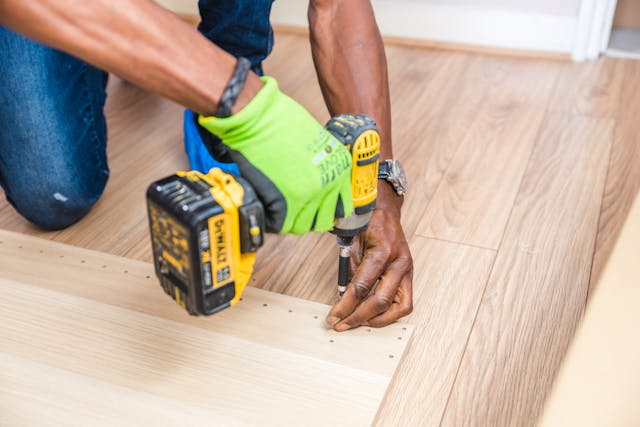Picture a familiar modern evening. The house is finally quiet. You have a cup of coffee, your phone is in your hand and you are scrolling through options for distraction. You browse through social media, streaming sites, puzzle apps, digital card games and are finally tempted by a glimpse of the jackpot city casino login screen. It feels very modern, but for more than two centuries, women in America have been finding ways to relax, connect and enjoy themselves at home, using whatever tools their era provided.
Frontier Evenings And Simple Pleasures
In the 1800s, especially during the Wild West and frontier years, home life could be physically demanding and isolated, with money often very hard to come by. Without electricity, evenings were often quiet and dark once daylight faded, so women relied on activities that were portable, affordable and sometimes essential.
Reading aloud, sewing, letter writing, singing and playing cards were common ways to pass time. Card games were especially popular because a single deck could last for years and be used alone or with others. Games like Old Maid and Whist appeared in many households. These moments of play helped you feel less alone during long winters and remote living.
The Parlour Era And Social Evenings
By the late 1800s and early 1900s, many homes had developed a “parlour”, a shared space for guests and leisure. If you were a woman at this time, hosting small gatherings was often an essential part of social life.
Victorian era parlour games, music and card evenings became common. Women also turned to magazines for entertainment and connection, with some publications reaching huge audiences by the early 20th century. Woman’s Home Companion, for example, had a circulation that peaked at over 4 million in the 1930s and 40s. That’s about one in ten of the US’s entire adult female population! These publications offered short stories, advice and puzzles that could be enjoyed during rare quiet moments.
Radio, Television And Everyday Escapism
In the 1920s and 1930s, radio changed home life by bringing the outside inside, enabling you to listen to dramas and comedies on the wireless while cooking or sewing. Revolutionary though this new electronic technology certainly was, it was only a precursor to what was to come.
After World War Two, television became dominant. By the 1950s, most American homes owned a TV, which drastically and permanently changed the nature of not just home entertainment, but the way families got together or shared meals. And in terms of the wider social change brought by television, that was the tip of the iceberg.
For many mothers, daytime programmes and evening shows offered predictable comfort. Card games and board games remained a popular way to stay connected, especially for mums hoping to keep households entertained. Leisure became a mix of watching and participating.
Home Computers And Early Gaming
In the late 1970s and 1980s, video game consoles first entered living rooms. Instead of travelling to arcades, people could play at home, which undoubtedly made a huge difference to the huge numbers of female gamers: a 1983 survey by Electronic Games magazine showed that the median age of their female readers was 26, that more than 42% were between the ages 25–40 and that 8% were over 40.
By the late 90s, computers and online games had become common. Nowadays, research shows that about four in ten adult women in the US play video games at least sometimes.
Smartphones, Casual Casino Play And Modern Downtime
Today your entertainment fits in your pocket. For many women this includes digital play that goes beyond puzzles and card apps into online casino style games. Research from 2025 suggests that women now make up about 40% of online casino players in States where it’s licensed for play in the US, such as New Jersey and Pennsylvania. Arguably, the ongoing change in gambling legislation nationwide is reflecting as well as driving how digital slots, bingo and related games have become more accessible and appealing, through legal, mobile-friendly platforms.
Online bingo and casual slot games in particular have long attracted a strong female audience, because they offer low-pressure engagement that can easily be paused and picked up whenever you have a moment to spare, rather than demanding your full attention for long periods. While participation rates vary by state, this shift shows how digital entertainment continues to blend into everyday life.
What Has Stayed The Same Over Time
When you look across history, it becomes clear that women’s home entertainment has always balanced comfort and control. Whether you were holding a deck of cards in 1870 or a smartphone in 2026, you were seeking a small space that belonged to you: fitting enjoyment around responsibility, around family needs and around limited time. You were choosing activities that could be paused, shared or enjoyed alone.
From candlelit parlours to glowing screens, the tools have changed, but the purpose has not.
A Long Tradition That Keeps On Changing
Your evening routine today is part of a long story. When you scroll, read, play or watch something after a busy day, you are following in the footsteps of women who found joy through cards, radio shows, magazines and early computers.
These small moments matter. They help you recharge, reflect and feel connected to a wider world. Across centuries of change, American women have always found ways to claim those moments at home. And in doing so, they have quietly shaped what leisure looks like for every generation that follows.








